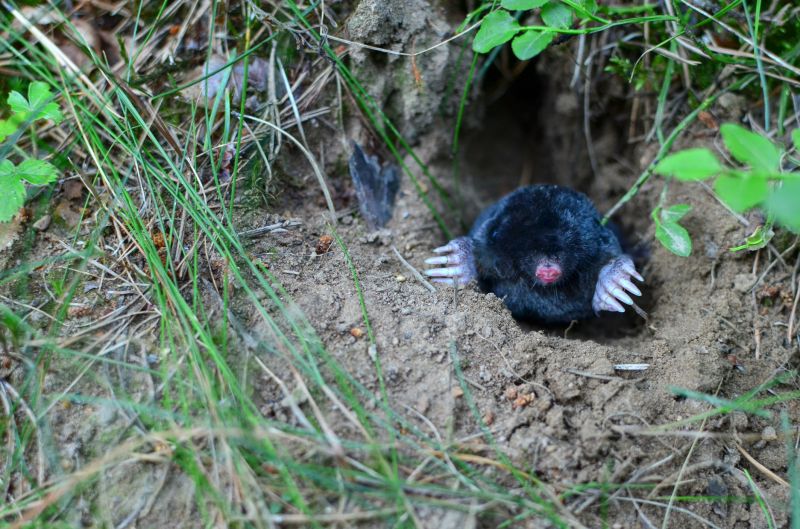Expert Picks for Mole Removal Products That Work
Find highly recommended mole extermination solutions crafted to target moles effectively and prevent future infestations.
 Moles can be a persistent challenge for many homeowners and gardeners, often creating underground tunnels that can damage lawns and landscapes. Addressing mole activity effectively requires understanding the various products available and selecting the most suitable options for your specific situation. From traditional trapping methods to electronic deterrents and baiting systems, there are multiple approaches designed to help manage mole populations. Choosing the right product involves considering factors such as safety, ease of use, and the extent of the infestation. Proper application and patience are key, as results may vary depending on the severity of the problem and the type of product used.
Moles can be a persistent challenge for many homeowners and gardeners, often creating underground tunnels that can damage lawns and landscapes. Addressing mole activity effectively requires understanding the various products available and selecting the most suitable options for your specific situation. From traditional trapping methods to electronic deterrents and baiting systems, there are multiple approaches designed to help manage mole populations. Choosing the right product involves considering factors such as safety, ease of use, and the extent of the infestation. Proper application and patience are key, as results may vary depending on the severity of the problem and the type of product used.
Top Overall Option
Traditional Mole Trap System
A traditional mole trap system offers a reliable method for capturing moles humanely. Designed to be inserted into active tunnels, these traps require careful placement and regular monitoring. They are often considered a straightforward approach for those seeking a physical control method without the use of chemicals. Proper installation and patience are key to success, and these traps can be reused multiple times, making them a cost-effective option for ongoing mole management.
Types of Products For Mole Exterminations
Manual Traps
Devices designed to be placed directly into tunnels to capture moles humanely.
Electronic Repellents
Devices that emit vibrations or sounds intended to deter moles from the area.
Baiting Systems
Chemical baits formulated to attract and eliminate moles when used correctly.
Repellent Sprays
Chemical or natural sprays applied to soil to discourage mole activity.
Ultrasonic Devices
Electronic devices that produce ultrasonic waves to repel underground pests.
Physical Barriers
Underground fencing or mesh that prevents moles from entering specific areas.
Soil Disruptors
Products that alter soil conditions to make the environment less hospitable for moles.
Natural Deterrents
Organic options like castor oil or garlic-based solutions to deter moles.
Live Traps
Humane traps that capture moles for relocation away from the property.
Chemical Repellents
Chemical formulations designed to make the soil unattractive to moles.
Popular Choices
Widely used for their simplicity and effectiveness in capturing moles.
Trending electronic devices that emit ultrasonic sounds to deter pests underground.
Popular bait systems that attract moles with food-based lures.
Devices that produce vibrations to discourage mole activity.
Natural deterrent sprays that are commonly used to repel moles.
Physical barriers that are gaining popularity for long-term exclusion.
Eco-friendly options that operate using solar energy to emit deterrent signals.
Non-lethal options that are often preferred for ethical reasons.
Granular formulations that can be spread over affected areas to discourage mole tunneling.
Products designed to disturb underground conditions, trending among gardeners.
Effective mole control often combines multiple strategies tailored to your environment. For instance, physical barriers can prevent moles from entering specific areas, while repellents and deterrents may discourage their activity. Some products work by targeting the moles directly, such as traps that capture them humanely or bait systems designed to attract and eliminate them. It is important to read product instructions carefully and follow safety guidelines to ensure effective and safe use. Regular monitoring of the affected area can help determine if additional treatments are necessary.
Understanding the behavior of moles and their habitat preferences can also inform your product choices. Moles tend to thrive in moist, loose soil with abundant food sources like earthworms and grubs. Products that modify the soil environment or disrupt their food supply can be beneficial. Additionally, integrating cultural practices such as reducing soil moisture or removing their food sources can enhance the effectiveness of your chosen products. Patience and consistency are essential, as controlling mole activity often takes time and persistence.
Ultimately, selecting the right products for mole extermination depends on your specific needs, the size of the affected area, and your preferred method of control. Whether opting for physical traps, electronic deterrents, or chemical repellents, understanding the options available will help you make an informed decision. Combining multiple methods and maintaining a regular treatment schedule can improve your chances of successfully managing mole activity and protecting your landscape.
Key Buying Considerations
- Effectiveness of the product for your specific mole problem
- Ease of installation and use
- Safety for pets and children
- Reusability and durability of the product
- Type of control method preferred (physical, chemical, electronic)
- Size of the affected area and whether the product covers it adequately
- Environmental conditions such as soil type and moisture levels
- Potential impact on non-target wildlife or beneficial insects
- Cost and long-term value of the product
- Availability of replacement parts or refills
- Customer reviews and reported effectiveness
- Compatibility with existing landscaping or garden features
- Regulatory compliance and safety certifications
- Maintenance requirements and frequency
- Manufacturer reputation and warranty options
